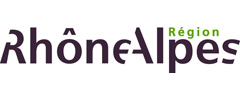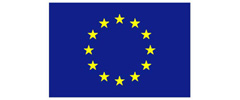Women’s Major Group Statement
Making energy services affordable for women: Women's statements at the UN Commission for Sustainable Development, 14th session on energy
08.05.2006 |Sascha Gabizon

Women's MSD statement
Women's statement on nuclear issues
CSD-14 Multi-stakeholder Dialogue, May 3, 2006
In spite of energy services being essential for human existence, energy poverty impacts on the livelihoods of rural and urban communities in developing countries. This energy poverty has a gender dimension in which women n are disproportionally affected by the lack of access to energy services. Women spend large amounts of time and physical energy obtaining traditional fuels; work over indoor smoky fires that cause respiratory illnesses and other diseases; and grow and process food and transport heavy loads without motorized equipment.
Again inspite of this situation, energy needs for the poor communities, particularly the women and children in these communities, in terms of access to energy services, are rarely taken into account in national polices, programmes and projects. Energy agencies tend to focus on increasing fossil fuel supplies and expanding electrical distribution grids for industrial and urban expansion. Most energy managers are male engineers with primarily technical and little social, expertise.
Achieving gender-sensitive energy policies and initiatives is well within reach as governments gain a better understanding of the linkages between gender, energy, and development; enable women to take part in decision-making; improve women’s access to energy technologies, training, and financing; and empower women to become energy entrepreneurs. Relatively simple changes, such as gathering data that reflects impacts on both men and women, can make energy policies more effective and equitable for end users.
Governments that follow this approach have already benefited and learned the following important lessons:
1. Supportive government policies help promote the integration of gender concerns into energy polices, projects and planning processes. In Uganda for example, the National Gender Policy was a significant factor in the gender-responsiveness of the Uganda Photovoltaic Pilot Project for Rural Electrification.
2. Income-generating uses of energy technologies can help make energy services affordable for women, and increase their social and political status. In Mali, the Multifunctional Platform Project for village power has enabled women’s groups to operate equipment, lighting, and water pumps, providing the women with a source of income and gaining them respect for bringing significant benefits to their villages.
3. Introduction of energy technologies are most successful when they address the needs of people meant to use them. In India, a stoves disseminated programme led by the government, received improved results only after changes were made to its implementation, to explicitly consult with women end users and involve women involvement in maintenance and women increased participation in the overall process.
This CSD session is a microcosm of how the world approaches the energy sector. When women raise the flag that it is important to differentiate between women’s and men’s energy needs and uses, governments and global institutions stand in agreement, as they have done here beginning with the gender and energy panel on Monday. But progress in understanding the gender-energy linkage, in the larger world or at the CSD, has not automatically translated into bottom-up and rights-based approaches to energy planning.
The Women’s Major Group sees CSD-14 and -15 as an opportunity to bridge this gap between understanding and concrete action—toward energy planning that puts women’s empowerment and their adequate participation in management and decision-making at the center, not only in developing countries, but also in industrialized countries and countries in transition.
Intervention of Women Major Group in the Regional Discussions: UN ECE region UN ESCAP region
Diversity difference and the importance of Asia and the Pacific in the global context lead us to consider the ways in which we could make the green growth a reality. The RIM report and the Fiji statement indicated the importance of gender in energy development. Green growth without jeopardising the environment, ensuring gender equity is a key issue to be taken into consideration.
The reason is that in many countries, equity remains on the periphery of natural resource management. This includes energy resource management as well. Similarly women energy needs for cooking energy remains in the periphery of the energy paradigm. In many areas in developing countries cultural barriers limit the opportunities for women to play equal roles in energy resource management. Lack of resource ownership is a constraint for women in many communities to undertake the challenging task related to energy development and extend their partnership for the future.
Under the same circumstances access to modern energy has become a practical difficulty for women. Economic opportunities enabling women to make use of modern energy is central to the achievement of development goals. Sustainable management of energy resources is central to the proposed green growth movement in Asia and the Pacific. Green growth for energy enterprise could be taken as an example from this region. There are two reasons:
- In the majority of countries in Asia, women manage the biomass energy resources as customary users of land.
- The same group needs to be considered as a social capital for sustainable production and consumption and to make green growth a reality.
Gender integrated strategic planning by individual nations considering women as equal and equally responsible citizens is essential to meet the sustainable development goals and for realising the MGDs in Asia and the Pacific.
Women's Major Group Statement
Regional Disscusson on Sustainable Development Latin America and the
Caribbean Wednesday 3rd May 2006
presented by Hazel Brown
We wish to congratulate the Chairman for his efficient handling of the implementation process so far and we strongly support the continuation of this process at the regional level.
We also thank ECLAC for facilitating the input of women in the process. We must build and omprove cpllaboration between stakeholders on the issues of sustainable development.
Energy , poverty and gender inequality and inequities in gender decision-making have a major impact on sustainable development. In many Latin American and Caribbean rural communities and informal urban settlements, women are most affected by energy poverty because they are responsible for providing their households with food,water and energy.
Because gender energy and development are interlinked it is important that data be collected and dis aggregated so that gender issues may be effectively addressed in national and regional policies and projects.
We therefore recommend:
1. Specific time bound Regional targets for renewable energy use and efficiency in energy use, with suitable incentives and resources for research and development; investment and promotion. There is need in this connection to include the utility regulstors as amajor players in this process.
2. We must link changes in the energy matrix to employment creation in SMEs including areas of installation and maintenance
3. We must buid capacity and support consumer organisations at national and regional level to change consumption patterns which are harmful and inefficient.
4. UNDP Carbon Fund be used to allocate resources for a strong Regional solar energy project.
In order to overcome poverty and acheive the Millenium Development Goals energy access must be human rights based and not market based.
Strong public sector infrastructure, policues and programmes and regulation are central to clean and efficient energy access. Gender balance is also necessary to ensure that women's rights, needs and experiences are considered in energy policy decision making at all levels.
Training, capacity building, research and product development and adequate allocation of resources and technology are essential to overcome energy poverty.
We support the position of Barbados that the UNECLAC Caribbean Office needs to be more involved especially in relation to matters concerning implemetation of the SIDS Programme of Action.
The CSD Women's Major Group is compiling a set of case studies to demonstrate some successful strategies for acheiving good gender balanced results in the area of the rewiew process and we are willing to share these with the Commission.
Thank you


































